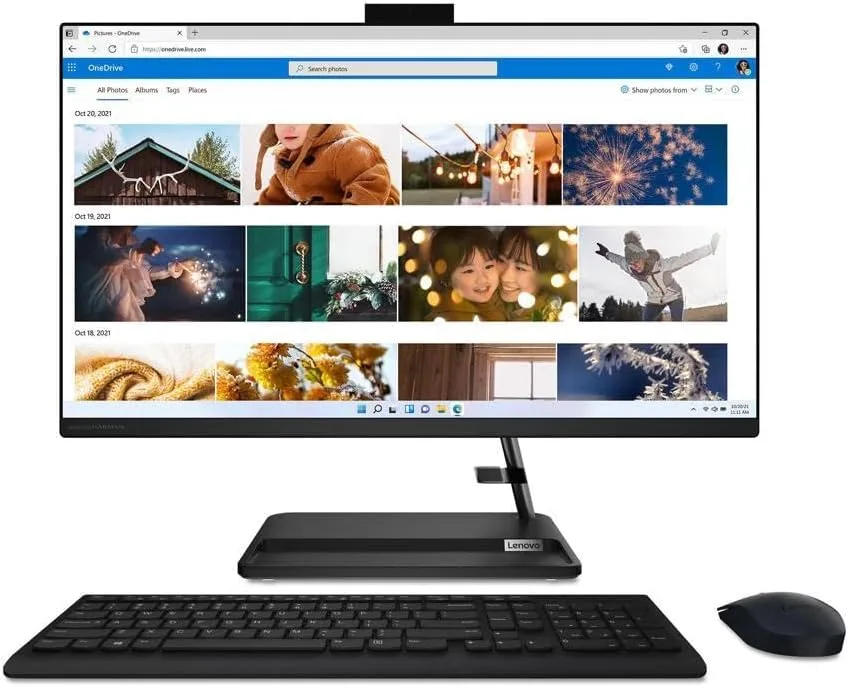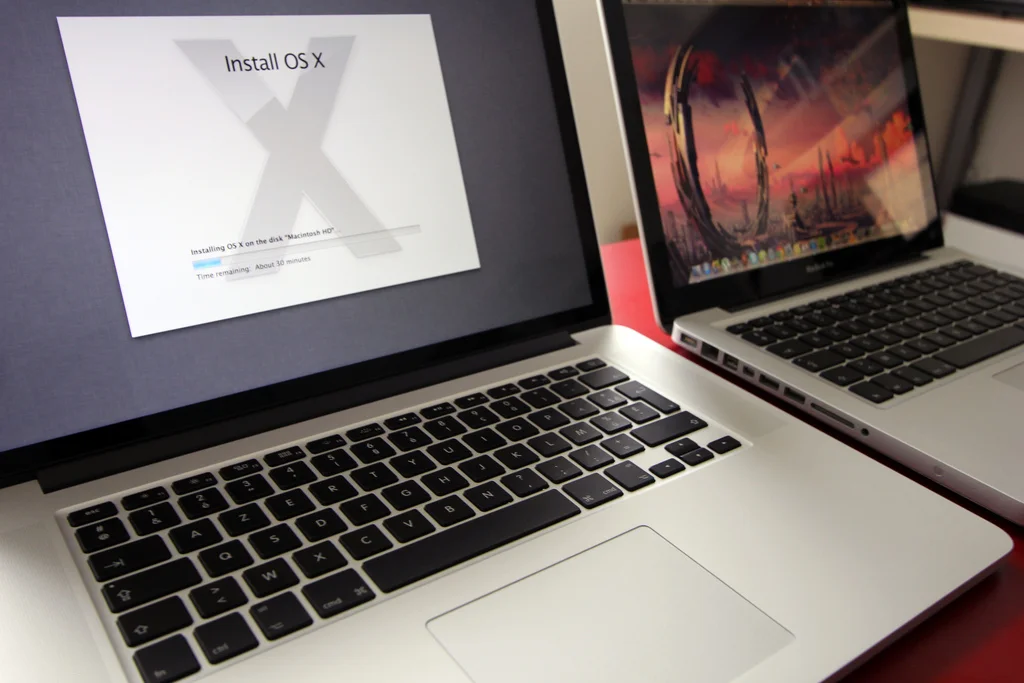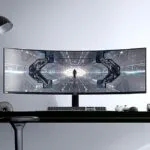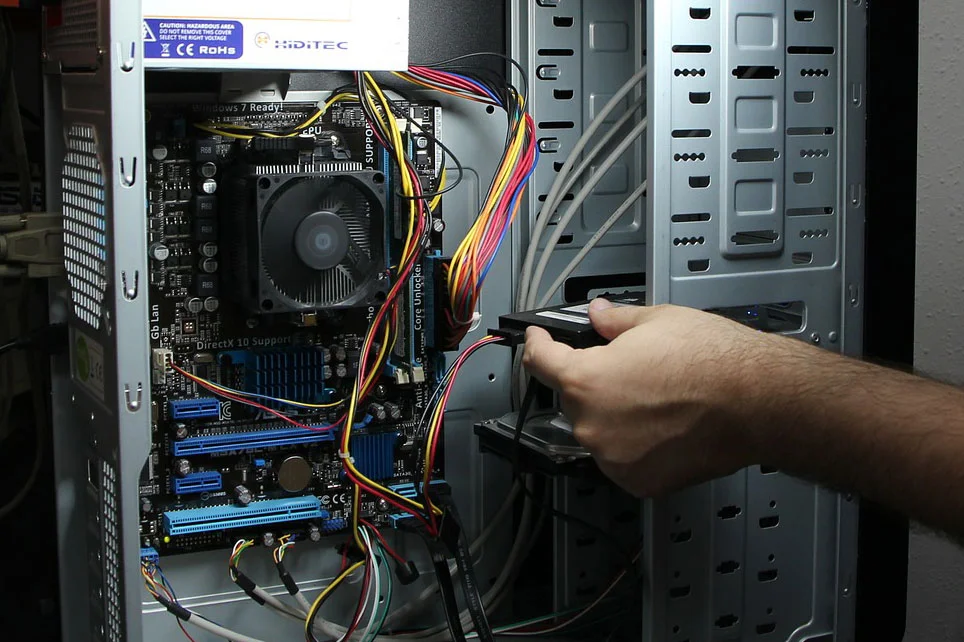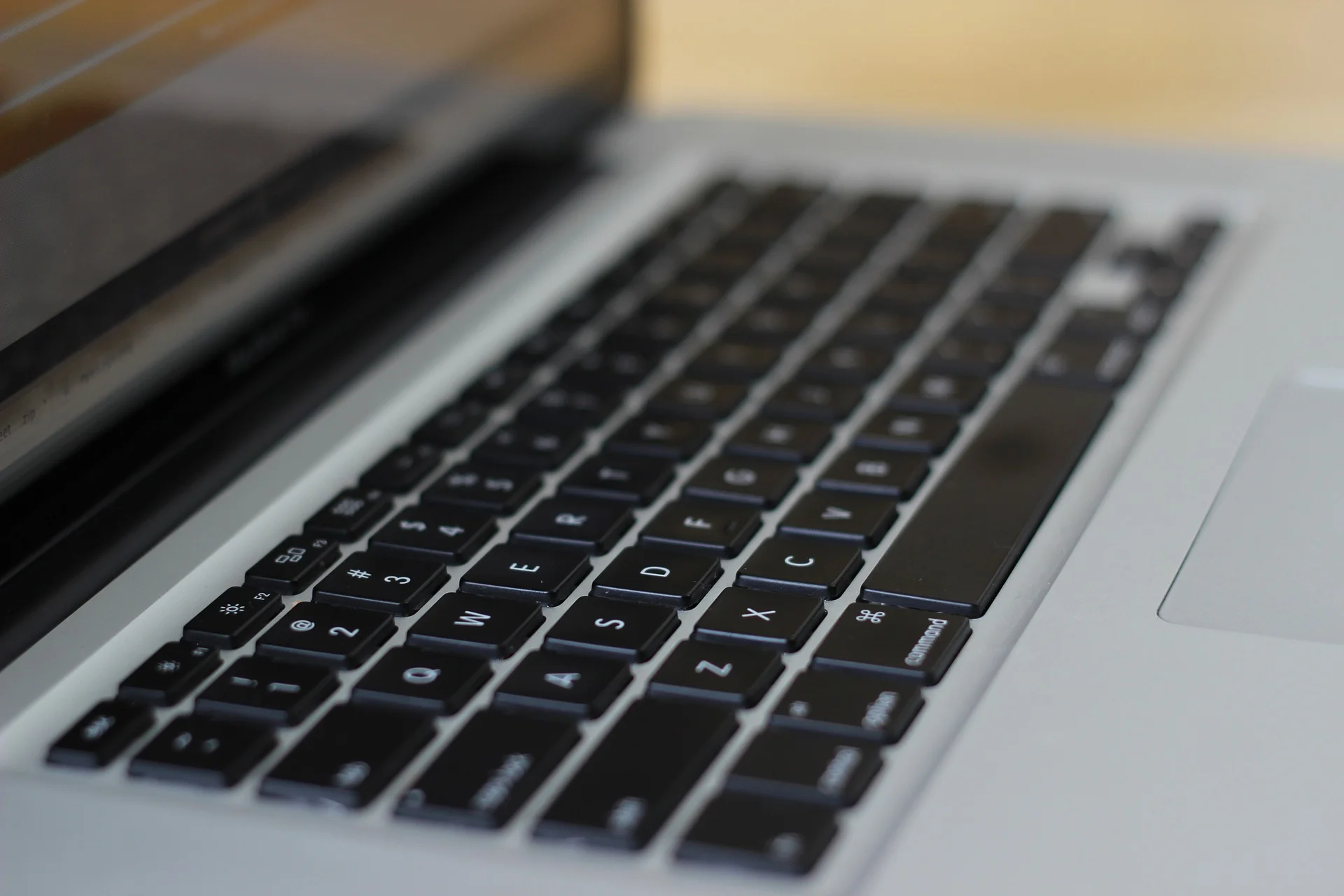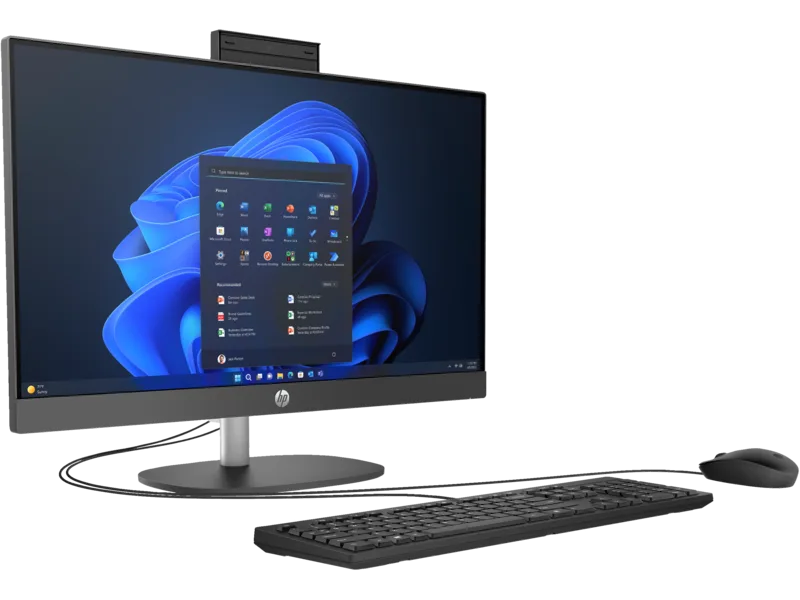
🖥️ DIY All-in-One Guide: Quick and Reliable Solutions at Home 💻✨
🔍💻 In this guide you will learn how to diagnose and solve common problems in your all-in-oneFollow the steps and check the results after each change. 🛠️
 🔧 Quick Guide: What to Check First
🔧 Quick Guide: What to Check First
📌 Before you begin:
• 💾 Make a backup if the system turns on.
• ⚡ Turn off and disconnect the equipment from the power.
• 🖐️ Discharge your static electricity (ESD) by touching an unpainted metal surface.
• 🛡️ Check the manufacturer's warranty conditions.
- 🖥️ Black or broken screen1) Connect an external monitor to eliminate the GPU. 2) Adjust brightness/function keys. 3) If cracks are present, avoid applying pressure to the damaged area and plan for replacement according to the model's manual.
- ⚡ Upgrade of storage: Migrate from HDD to SSD. 1) Verify the format (SATA/M.2). 2) Clone the drive with reliable software. 3) Update the boot order in BIOS.
- 🧠 RAM upgrade: 1) Check compatible type/speed. 2) Install modules that are the same for dual-channel. 3) Run a memory test.
- 🔌 Power connector: 1) Check the cable and socket. 2) Look for play in the connector. 3) If there are sparks or a burning smell, stop using it and proceed to section 🆘.
✅ Electronics and firmware (intermediate level):
- 🔬 Chips (GPU/PCH/regulators): Diagnose overheating with monitoring software and test under light load before considering replacements.
- 💡 BIOS/Firmware: 1) Restore default values. 2) Update to the recommended version. 3) Do not disconnect power during the process.
- ⚡ Short circuits on the board: Signs: sudden shutdowns, clicking, odor. In this case, do not turn on the device: go to 🆘.
✅ Software (basic steps):
- 🧹 Reset Windows 10/11 keeping files and then install drivers from the manufacturer.
- 🛡️ Scan with your antivirus and, if it detects malware complex, performs an offline scan.
- 🔄 Optimize startup: disable unnecessary apps and check for updates.
✨ Key tips for a successful DIY
- Document changes: : Write down each setting and create restore points.
- Use compatible spare parts: : consult the model's technical sheet.
- Keep order: Separate the screws by stage and take photos of the disassembly.
- Stage test: After each change, check startup and stability.
👉 Typical faults and how to act
🔹 Broken screens or dead pixels
1️⃣ Assess the damage; 2️⃣ Use an external monitor; 3️⃣ Plan a replacement according to the manual.
🔹 Operating system with faults
1️⃣ Safe Mode; 2️⃣ System Restore; 3️⃣ Reset/Clean Install.
🔹 Switch to SSD
1️⃣ Clone; 2️⃣ Change boot order; 3️⃣ Enable TRIM.
🔹 Insufficient RAM
1️⃣ Check slots; 2️⃣ Expand in pairs; 3️⃣ Test with MemTest.
🔹 Power/connectors
1️⃣ Check the power supply; 2️⃣ Cable/ports; 3️⃣ Stop using if you notice sparks or an odor.
🔹 Graphics chips/PCH
1️⃣ Monitor temperatures; 2️⃣ Clean and renew thermal paste; 3️⃣ If there's no video, skip to 🆘.
💻 Express Steps and Verification
Final checklist after each intervention:
- Boot and detection in BIOS/UEFI.
- Rest/load temperatures within range.
- Light stress test and event review.
👍 Useful resources for your AIO
| Issue | Detail |
|---|---|
| ⏱️ Estimated time | Basic diagnosis 24/48 h (guideline according to model and spare parts). |
| 🔧 Skills | From intermediate user (software) to advanced (disassembly/electronics). |
| 💡 Transparency | Record spare parts and steps taken; save receipts and links to tutorials. |
| 🛡️ Guarantee | Check the manufacturer's terms before opening the equipment. |
📲 Quick decision guide
🆘 When should you see a technician?
Contact a trusted technical service if you notice a burning smell, strange noises, physical damage to the board/screen, data encryption, short circuits, leaks, or if the procedure requires soldering/reballing stations.
👇 Use your preferred method to seek professional help if you feel it is necessary.
🗺️Identification and organization:
📍 Locate the serial number of the equipment to register warranties and compatible spare parts.
🕒 Note the date of each intervention and test results.


DIY RESOURCES
Guide for planning spare parts and tasks (without prices).
| # | Task | Difficulty |
|---|---|---|
| 1 | Diagnosis of motherboard when it won't turn on (power tests and POST). | High |
| 2 | Screen replacement | Average |
| 3 | Keyboard change | Average |
| 4 | System Reinstallation with updated drivers | Average |
Unstable or frozen equipment? Consider professional help if DIY steps don't solve the problem or there's an electrical hazard.


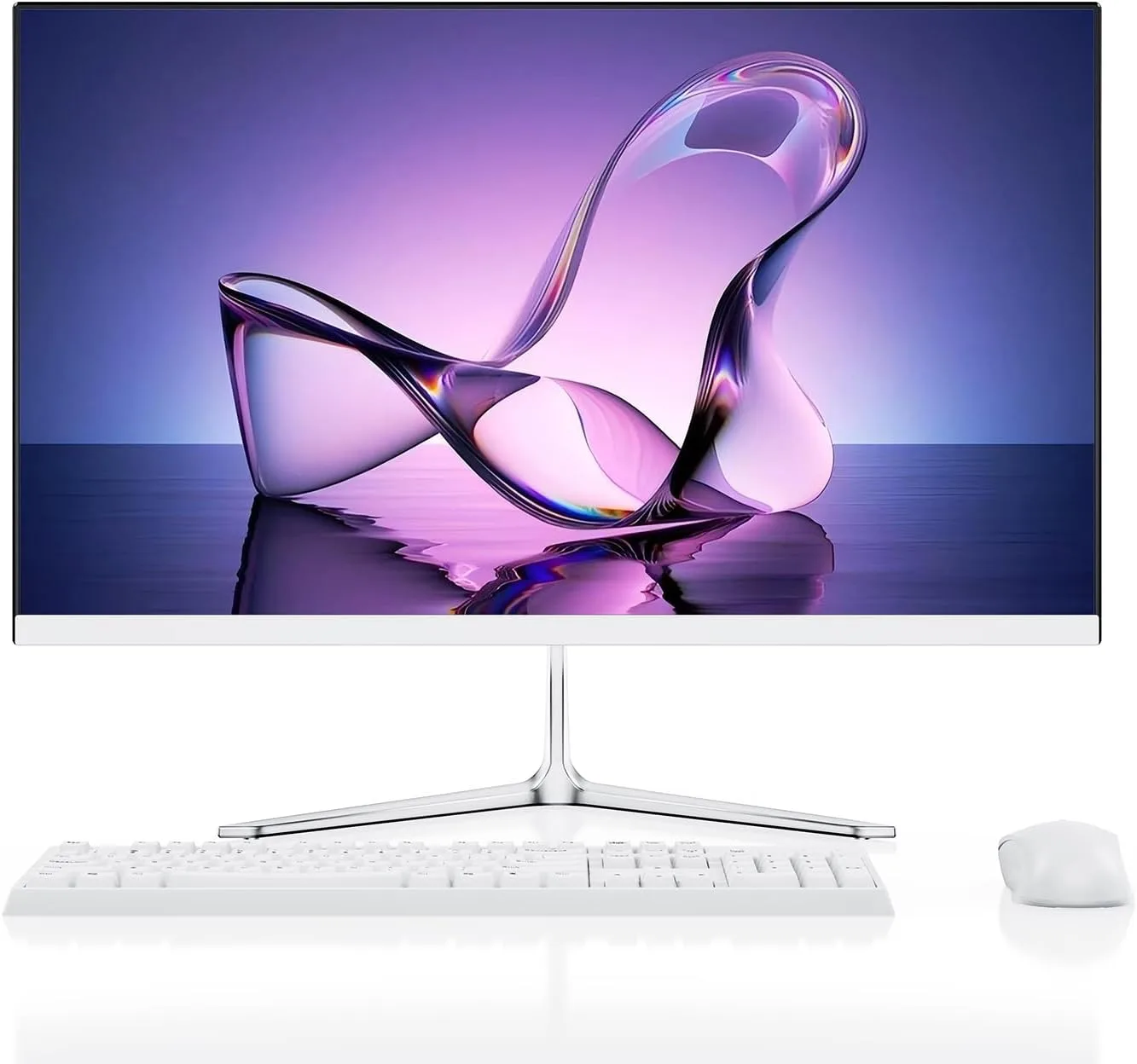 🔧 Quick Guide: What to Check First
🔧 Quick Guide: What to Check First